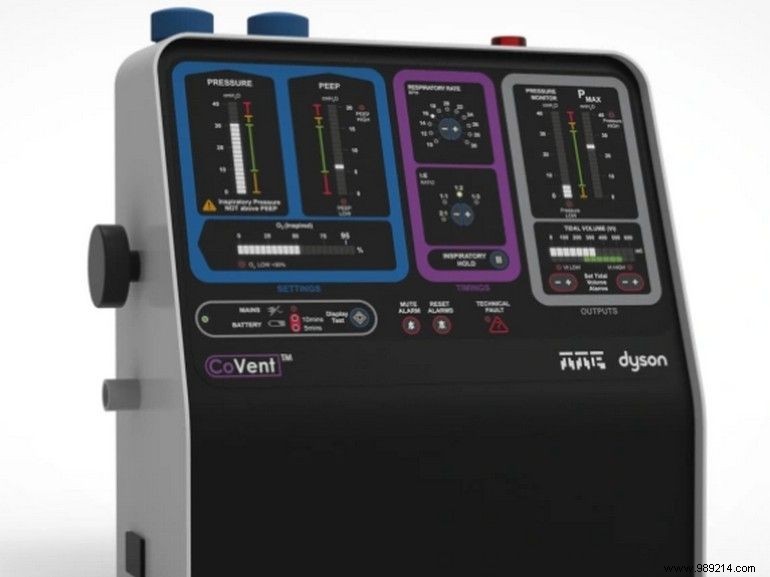The Dyson company will supply 10,000 devices to British hospitals overwhelmed by the number of intensive care patients. Several thousand respirators will also be exported internationally.
We know that patients with severe forms of COVID-19 can develop pneumonia, an infection that occurs in the alveoli of the lungs (which extend the airways) where gas exchange with the blood takes place. When a microbe – in this case the coronavirus SARS-CoV-2 – attacks the lungs, these alveoli then fill with pus and inflammatory fluid. They are then no longer able to perform their function:absorb oxygen and expel carbon dioxide.
This is where respirators come in. These machines, basically, inject oxygen into the lungs – via an endotracheal (ET) tube inserted into the trachea – and eliminate excess carbon dioxide to facilitate the respiratory process. In other words, they "breathe" for the patients who need it, until their condition stabilizes.
Respiratory assistance being essential to treat the most serious cases of Covid-19, manufacturers of artificial respirators, like the American GE Healthcare, the Swedish Getinge or the French Air Liquide, have had to increase their production capacities. But given how fast the disease is spreading, that might not be enough.
To avoid shortages, we know that several car manufacturers, such as Tesla, General Motors or Ford, have been called upon to manufacture them. In France, the PSA group also plans to produce parts. But other companies have also been involved. This is particularly the case of Dyson , best known for its vacuum cleaners, which responded favorably to a request from British Prime Minister Boris Johnson.
And the famous manufacturer of household appliances obviously wasted no time. According to information from CNN and Fast Company, an artificial respirator dubbed CoVent would indeed have been thought in the space of just ten days! The model will attach directly to a medical bed and can be operated on battery power when needed. This last point should facilitate patient transfers.

Credits:Dyson
The company also said it was ready to immediately start production of 10,000 copies of this ventilator for the National Health Service, the United Kingdom's public health system. A first batch of 1,500 machines should normally be able to be delivered from the beginning of April, we learn. Another batch of 5,000 CoVents will also be distributed in several other countries in the coming weeks.
Source